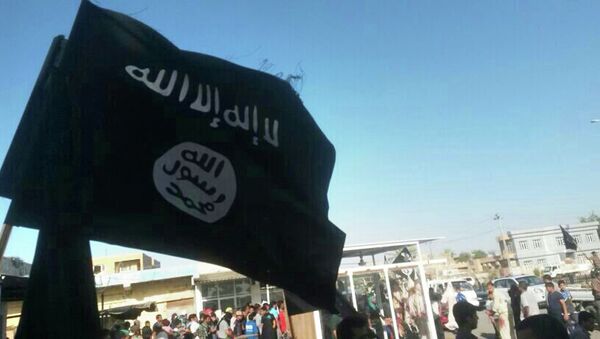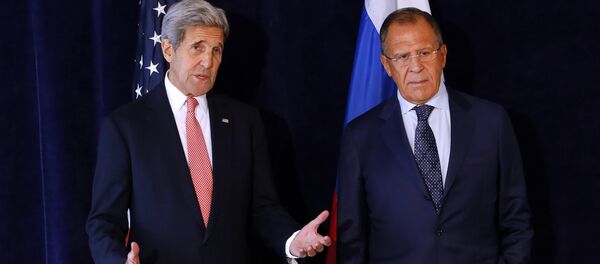NEW YORK (Sputnik), Leandra Bernstein — The US-led coalition against the Islamic State (ISIL) has had only limited success because it does not engage key regional governments, Russian UN Mission senior legal advisor Maxim Musikhin told Sputnik.
“As far as the reports that we hear, that those strikes, the efforts of the coalition have limited consequences on the ground, so they do not really solve the problem of ISIL,” Musikhin said Sunday.
“By building their capacity and helping them, upon their request and with their consent, and building the coalition upon this understanding, this is the way forward, this will bring results,” he explained.
The United States has repeatedly refused to coordinate its anti-Islamic State campaign with the government of Syrian President Bashar Assad, which it views as illegitimate.
Russia has argued that the US Coalition actions in Syria lack legitimacy because they are not coordinated with the sitting Syrian government or the United Nations.
On Sunday, Russian Foreign Minister Sergei Lavrov confirmed that Russia was engaged in coordination efforts with Iraq, Syria, and Iran to more effectively combat ISIL forces in the Middle East.
Maxim Musikhin also said that a more prominent role by the United Nations will produce a better outcome in the fight against the ISIL.
“The better we coordinate in the UN, the better the outcome,” Musikhin said on Sunday.
On Wednesday, Russia plans to propose a UN Security Council action to legitimize the international fight against ISIL.
“We would of course prefer that no unilateral actions outside the UN context are taken by states and coalitions,” Musikhin argued, noting that appropriate collaboration within the context of the UN “is the right way forward.”
Earlier this month, Russian President Vladimir Putin said that he had discussed creating a greater international anti-terrorism coalition, which would unite the forces of the international community and the Syrian government in fighting the IS with his US counterpart Barack Obama over the phone and had raised the subject with the leaders of Turkey, Saudi Arabia and Egypt, as well as other Russian partners.



